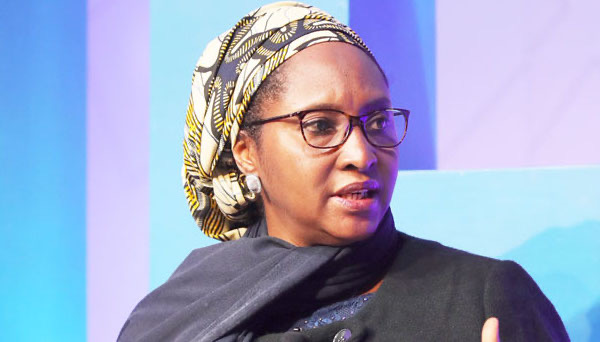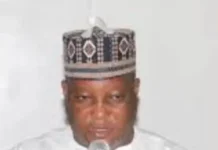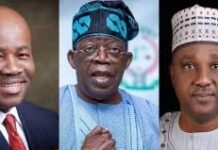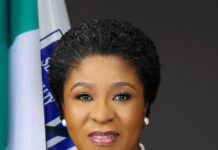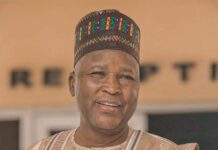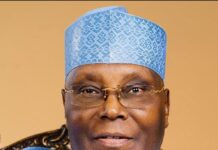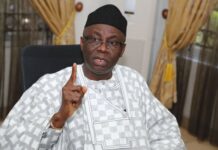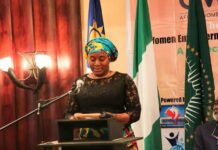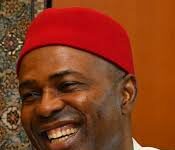Buhari to Create “Seat at the Table” for Nigerian Women
By Lawan Bukar Maigana
The Minister of Finance, Budget, and National Planning, Zainab Shamsuna Ahmed has said that the government of President Muhammadu Buhari will create a “seat at the table” and other special interventions to support and promote women inclusion in the government.
She made the statement at the International Professional Women Conference with a theme: “The Roles of Professional Women in Nation Building,” organized by the Society of Women in Taxation, held on Thursday in Abuja.
She said, according to a study on gender equality in the Nigerian private sector released by the International Finance Corporation (IFC) in collaboration with the Nigerian Exchange (NGX) in September 2021, of the 30 most capitalized companies listed on the NGX, women represented nearly one-quarter of board members, they comprised only 7 percent of CEOs.
She said female representation at the highest leadership levels, which include the board of directors, executive team, and senior management, ranged from 20 to 27 percent.
“Although this is in line with global averages, it speaks to the work ahead of us to grow these numbers and ensure greater female representation in the corporate sector, especially in those companies that control much of the global economy, the minister said.”
“The International Labour Organisation found that in African companies, having women in decision-making positions leads to companies reporting profit increases of about 15 percent.
Read Also:
“This is clear evidence that women in leadership positions are undoubtedly ‘good for businesses. In Nigeria where the average woman’s income is 58 percent of that of a man, as reported by the World Economic Forum (WEF) and the National Bureau of Statistics (NBS), it is evident that gender equality must run through the entire workplace to create a pipeline of female leaders who can become the decision-makers of tomorrow. We should set ourselves the ambitious and attainable goal of eradicating the need for conversations on gender equality in the future by wholeheartedly committing ourselves to close the gender gap in the present.”
Ahmed further said that the Buhari led administration has set up clear interventions for women in key areas:
• Access to financing and capacity building for women-owned businesses, particularly MSMEs through the Government Enterprise and Empowerment Programme (GEEP), the MSME Survival Fund, and the Women Empowerment Fund.
• Boosting financial inclusion and financial literacy amongst women and girls, particularly since women’s financial inclusion is a key driver of inclusive and sustainable development.
• Improving human capital development outcomes for women and girls through targeted government spending in line with Government priorities in key sectors including health and education.
• Ensuring that our fiscal policies and public financial management processes are more gender-sensitive, particularly in the areas of budgeting, implementation, and M&E.
• Ensuring equal access to information.
• Closing the digital gender gap.
She said that her ministry is actively engaging with the Central Bank of Nigeria to promote financial literacy for women, adding that: “The Economic Research and Policy Management Department of the Ministry represents us on the Financial Literacy Working Group which is working assiduously to address the barriers that have created a financial inclusion gap between men and women. The Ministry is also taking the lead on promoting gender-responsive budgeting. As defined by the United Nations Development Programme, this entails the analysis of the entire budget through a gender lens to identify gender-differential impacts and to translate gender commitments into budgetary commitments.
By doing so, we increase accountability and make the budget process more transparent, leading to equitable outcomes for men and women. We have also created a gender desk for each sector department in the Ministry to ensure that gender is mainstreamed in all our projects and interventions.”
Ahmed said that active steps had been taken to ensure that the top female tax professionals in Nigeria are included as part of the core team of the Fiscal Policy Reform Committee (FPRC).

